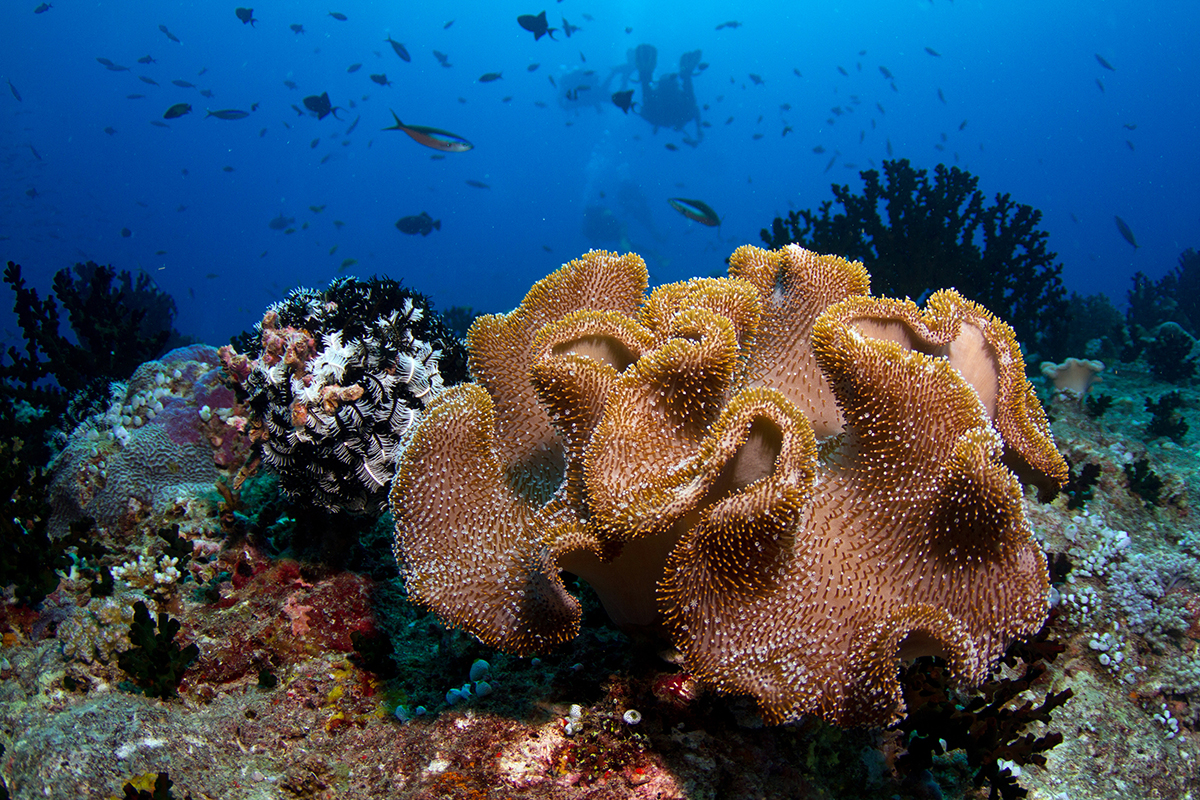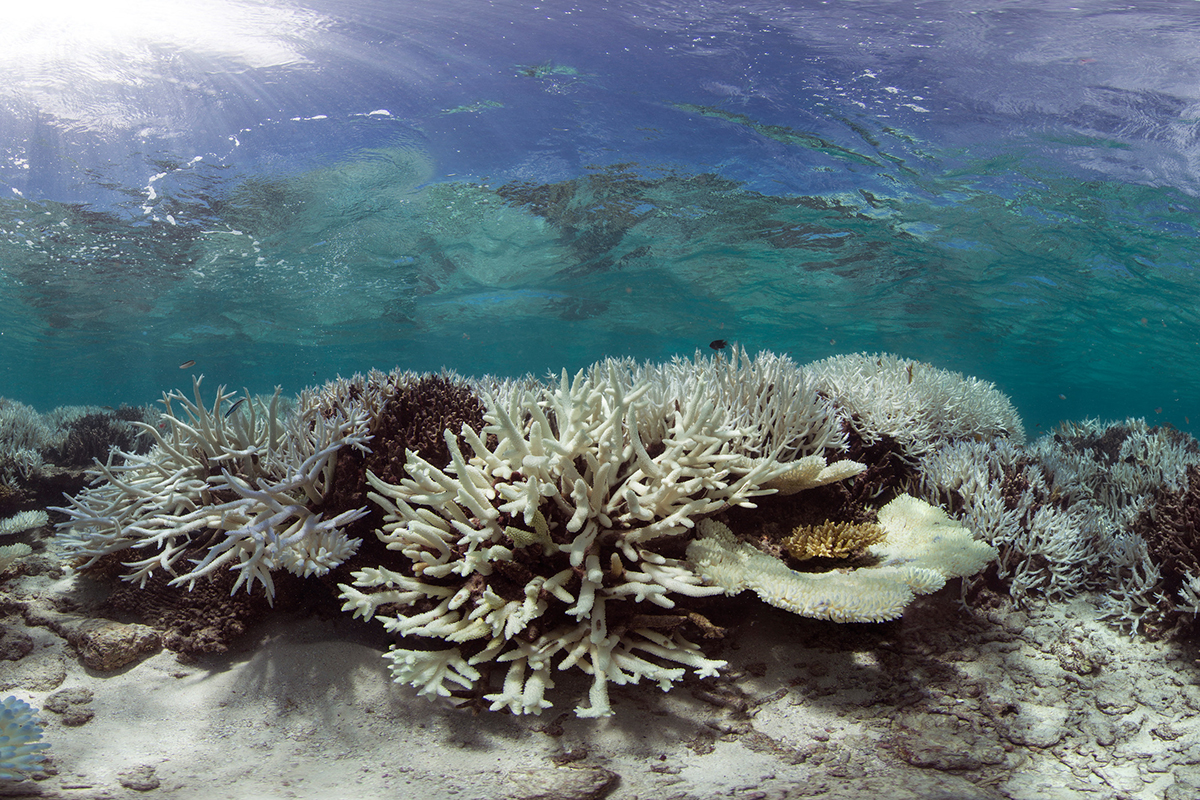Marine heatwaves are threatening ecosystems
Marine heatwaves can irreversibly damage ecosystems and, therefore, also present a threat to fishing. As a team led by physicist Thomas Frölicher from Bern showed in a study just published in the journal Nature, the number of marine heatwaves has increased dramatically in past decades. This trend will further intensify as a result of climate change.
Submarine pictures of coral reefs that have lost all of their bright colours have become iconic for the consequences of climate change. Just like the shrinking Alpine glaciers. The corals on the Australian Great Barrier Reef, for example, are an ecosystem that reacts very sensitively to marine heatwaves. Marine heatwaves are phases during which the sea-surface temperatures are much higher than usual.
When under prolonged exposure to heat, the corals bleach, i.e., they expel the tiny colourful algae living in their tissues, leaving behind the white skeleton. Without these algae, the corals tend to starve, and many eventually die. "Until now the corals were often able to recover from such bleaching events," explains Thomas Frölicher, Assistant Professor for Ocean Modelling at the University of Bern. "However, if the intervals between these events become shorter, the corals will no longer have time to regenerate and irreversible damage can be expected."
The quantification of the future progression of marine heatwaves is the core of Frölicher’s study that was published in Nature. As he and his colleagues Nicolas Gruber and Erich Fischer from ETH Zurich have quantified, the number of marine heatwave days has doubled between 1982 and 2016. And this is just the start. If the average global temperature rises to a 1.5 °C warming level — the temperature goal agreed to by the Paris Convention — a sixteen-fold increase in days during which marine heatwaves occur can be expected. In case of a temperature rise of 3.5 °C, they would increase by a factor of 41. The largest changes are projected in the western tropical Pacific and in the Arctic Ocean.
Marine heatwaves are becoming commonplace
Using satellite data and climate models, Frölicher shows that not only the number of marine heatwave days are increasing. The heatwaves are also becoming more intense, longer lasting and spatially more extensive. "Our results suggest that marine heatwaves are becoming commonplace as a result of climate change," says physicist Frölicher, "this will largely increase the risk of severe impacts on marine organisms, especially those with redued mobility."
The ocean warming and the associated sea level rise have been investigated and widely discussed by climate scientists for years. But little is known about marine heatwaves and their consequences. Recent observed marine heatwaves on the west coast of Australia and off California demonstrated that the biological consequences can be far-reaching: from a wide-spread change to species composition, through geographical species shifts, to harmful algal bloom, stranding of mammals and mass mortalities of particular species.
Losses in the millions for the fishing industry
These changes also have consequences for fishing. The marine heatwave in the north-west Atlantic in 2012 led to an unusally early migration of lobsters into this region – at a time when the supply chain was not yet ready and the consumers were not used to buy lobsters. The record catch outstripped market demand and contributed to a price collapse and losses of millions of dollars for the fishing industry.
The study by Thomas Frölicher and his colleagues on marine heatwaves is part of a still relatively unexplored research area: Extreme events in the oceans. It is only recently that extreme events in the ocean have started to be discussed as consequences of climate change. "They can lead to a complete change of marine ecosystems. And in some cases, these will no longer revert back to their original conditions even after extended periods of time," explains Nicolas Gruber, Professor of Environmental Physics at ETH Zurich. "This can also happen very abruptly with marine heatwaves."
The study reveals that the marine heatwaves are increasing as a result of global anthropogenic warming. "The number of marine heatwaves is increasing more rapidly than the number of heatwaves on land," says Erich Fischer, climate scientist at ETH Zurich. Although the warming over land is larger than over sea, the oceans react considerably more sensitively. The reason for this? The temperature variability is much smaller in the water than in the atmosphere. The probability of marine heatwaves, therefore, increases disproportionately to comparatively small temperature increases.
Publication:Thomas L. Frölicher, Erich M. Fischer, Nicolas Gruber, Marine heatwaves under global warming, Nature, 15. August 2018, doi: 10.1038/s41586-018-0383-9 |
2018/08/15


